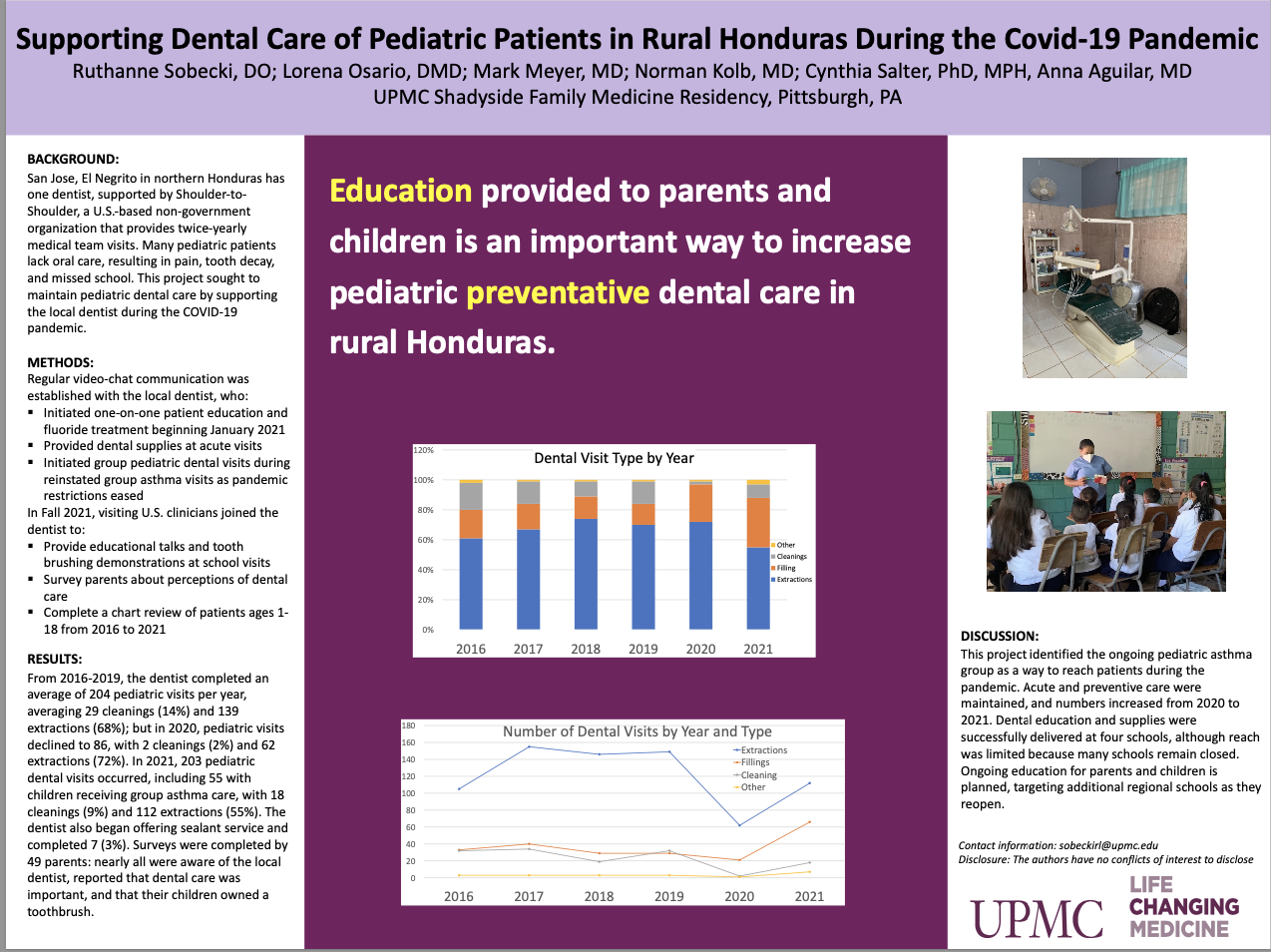University of Pittsburgh Geriatrics Fellow, Pittsburgh, Pennsylvania
Title: Supporting Dental Care of Pediatric Patients in Rural Honduras During the Covid-19 Pandemic
Authors: Ruthanne Sobecki, DO; Lorena Osario, DMD; Mark Meyer, MD; Norman Kolb, MD; Anna Aguilar, MD; Cynthia Salter, PhD, MPH
Background:
San Jose, El Negrito in northern Honduras has one dentist, supported by Shoulder-to-Shoulder, a U.S.-based non-government organization that provides twice-yearly medical team visits. Many pediatric patients lack oral care, resulting in pain, tooth decay, and missed school. This project sought to maintain pediatric dental care by supporting the local dentist during the COVID-19 pandemic.
Methods:
Regular video-chat communication was established with the local dentist. She initiated one-on-one patient education and fluoride treatment and provided dental supplies at acute visits beginning January 2021. As pandemic restrictions eased, group pediatric dental visits were initiated during reinstated group asthma visits. In Fall 2021, visiting U.S. clinicians joined the dentist to provide educational talks and tooth brushing demonstrations at school visits, distributed a parent survey about perceptions of dental care, and completed a chart review of patients ages 1-18 from 2016 to 2021.
Results:
From 2016-2019, the dentist completed an average of 204 pediatric visits per year, averaging 29 cleanings (14%) and 139 extractions (68%); but in 2020, pediatric visits declined to 86, with 2 cleanings (2%) and 62 extractions (72%). In 2021, 203 pediatric dental visits occurred, including 55 with children receiving group asthma care, with 18 cleanings (9%) and 112 extractions (55%). The dentist also began offering sealant service and completed 7 (3%). Surveys were completed by 49 parents: nearly all were aware of the local dentist; reported that dental care was important, and that their children owned a toothbrush.
Conclusion:
This project identified the ongoing pediatric asthma group as a way to reach patients during the pandemic. Acute and preventive care were maintained, and numbers increased from 2020. Dental education and supplies were successfully delivered at four schools, although reach was limited because many schools remain closed. Ongoing education for parents and children is planned, targeting additional regional schools as they reopen.

